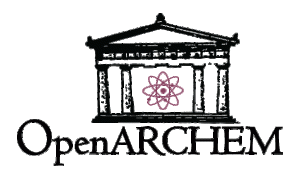
Have a background or interest in organic chemistry? Programming? Ancient languages and texts? Digital modeling and fabrication? Ecology? Or are you just excited about archaeological science?
The OpenARCHEM Project has opportunities for student research assistants to work in each of our five research teams. As a transdisciplinary project, we are looking for dedicated, enthusiastic contributors from a wide range of backgrounds to contribute to one of several research groups. If you are interested in joining one of the teams, please fill out our application form. Questions regarding research assistantships can be directed to the the OpenARCHEM Staff Coordinator at archaeochemistry@gmail.com.
Digital Modeling and Programming (DMP) Team
Team DMP builds 3D models of the artifacts sampled by the OpenARCHEM Project. Methods of acquisition include photogrammetry, using Agisoft PhotoScan to build the models, and high resolution scanning using an ARTEC Spider 3D scanner. The models produced will be uploaded to SketchFab and linked with their source objects in the OpenARCHEM database. Familiarity with PhotoScan (and the ARTEC) is desirable but not critical in the early stages – the learning curve for PhotoScan is significant, but the protocols are well-documented. 3D scanning with the ARTEC will take place on both the Wesleyan and Brandeis campuses, with occasional trips to museums for additional projects.
Mapping and Ethnobotanical Research (MER) Team
Organic residue analysis studies not only help scholars to identify the contents within an ancient vessel, but in aggregate help to reconstruct ancient ecological landscapes. The Team MER is producing such a palaeoecological map. They are researching evidence (botanical, palynological, climatic) for the ancient Mediterranean palaeoscape, and integrating their results with those of Teams TER and OC, to map locations in which specific plant species are known to have grown in antiquity (or which our new organic evidence demonstrates they existed), and during which time period. At scale, the organic and ethnobotanical data will help to reconstruct changes in the ecology of the region over time.
Organic Chemistry (OC) Team
Team OC works directly with the organic residue samples taken from the artifacts, on tasks ranging from sample preparation, sample running (via chromatography) and preliminary analysis, to working with Team PLR to build a reference database of the most commonly occurring species. Group members will work with project senior staff to carry out first-round identifications of major diagnostic compounds that appear in the chromatograms, carry out basic research into fatty acid degradation processes, and gradually acquire expertise for more refined analyses. Experience and knowledge of chromatography (especially GC-MS) and basic principles of organic chemistry are required.
Publications and Legacy Research (PLR) Team
Interested in learning more about the identification of ancient Mediterranean and Mesopotamian commodities and goods through pollen, seed, and organic data? The OpenARCHEM Project arose to answer a need for “big data” in organic residue analysis studies. While we are populating the OpenARCHEM database with over 5,000 of our own samples, there are many organic studies of ancient artifacts that have been published in disparate journals over the past few decades, and we want to bring them to the OpenARCHEM database so that this data can be accessible for all scholars to share and compare. Team PLR searches out legacy publications that include organic residue analysis data, and converts the previously published data into OpenARCHEM-compatible format. This is not simply a cut and paste operation, but requires an understanding of organic residue processes, and ability to evaluate the quality and nature of the evidence presented, and translate it for a modern audience of scientists and archaeologists.
Textual and Ethnohistorical Research (TER) Team
References to ancient botanicals appear in a wide variety of textual sources from around the world, from poetry, social histories, and medical treatises, to wisdom literature and religious texts. By some estimates, only 20% of these referenced botanicals have been definitively identified by genus. Team TER identifies references to ancient botanicals and connects them to the plants recovered from organic residue analysis by the OpenARCHEM Project, noting not only where they occur, but the names – in various languages – by which the plants are called, as well as their medicinal and other properties. Team TER takes individuals with an intermediate background in the languages of the world, both past and present, including but not limited to Latin, Greek (including Linear B), Sanskrit, Chinese, Hebrew, Arabic, Aramaic, Egyptian, Sumerian, and Akkadian.
